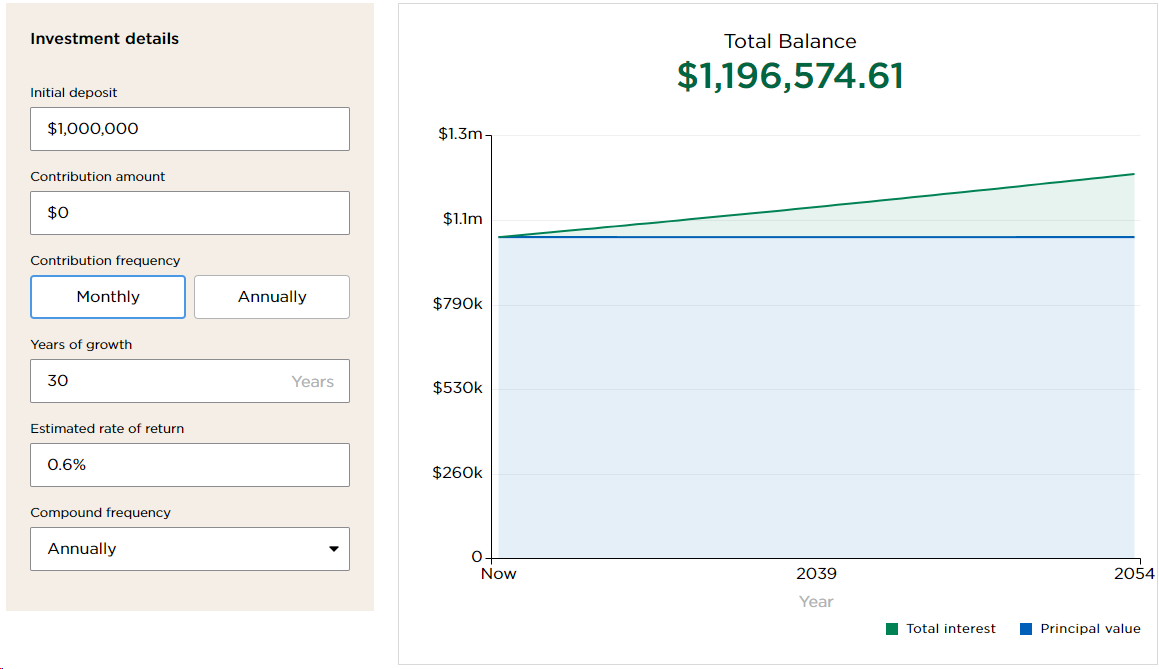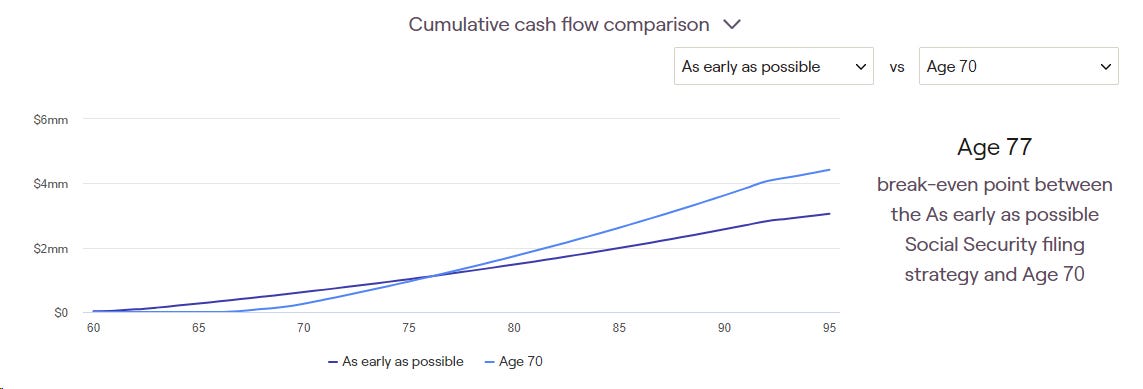Happy Wednesday!
I’m regularly told by people who are referred to me that I was described as “conservative” by the person that pointed them my direction.
And while I can think of much worse things to be called, what does “conservative” even mean?
Like many things in personal finance, it depends…
Conservative for one person might be considered aggressive to another.
And vice versa.
But I’m not going to attempt to define the word conservative.
Instead, I want to highlight a couple of examples - from my perspective, at least - where being “conservative” might be doing the exact opposite of what you’re really after.
Sorta reminds of this scene from The Princess Bride:
Now let’s consider some examples.
Over the years, I’ve had clients say things like, “what if we assume a conservative return like 5% per year?”
Typically this is in the context of their financial plan.
But as you know if you’ve read my writing for any length of time, one of the very few things I can absolutely, without a doubt guarantee about your financial plan is that there is no way you or anyone will get the same return each and every year into the future.
It’s not how investment markets work.
Sure, you can go out today and buy a 12-month Treasury bond today that’s paying over 5%. See Treasury rates in the table below:

But what happens after 12 months? Where will rates be then?
Your financial plan (and life) are going to be much longer than the next 12 months. Or that’s certainly what we’re planning on and hoping for.
And you’re probably thinking the 30-year Treasury in the table above is currently paying about 4.40% which isn’t too far off from our “conservative” 5% return assumption.
But over 30 years, that 0.60% difference can make quite an impact as you can see here:

What the online calculator above shows is that a 0.60% interest rate difference on $1 million over 30 years is equivalent to almost $200,000.
There are also situations where taking more investment risk can be the more conservative choice.
Otherwise, if you’re not taking enough investment risk, you might be relying too much on the “hope and prayer” investment strategy and/or you might be setting yourself up for some “lifestyle reductions” in the future.
But being “conservative” isn’t just about investing and portfolio decisions.
What’s the most conservative choice when it comes to your Social Security?
Is it more conservative to wait until age 70 so you get the highest benefit amount?
Or does your version of conservative lead you to take a reduced benefit as early as age 62.
Some clients see waiting until age 70 as too much longevity risk.
They’re worried they might not live long enough to capture the full benefit of waiting to start Social Security even though it would mean a larger monthly check.
Other clients see political risk in the entire Social Security system and want to “get theirs while they can.”
As the chart below shows for one of my clients, the difference between starting Social Security as early as possible versus waiting until age 70 means they’ll need to live to at least age 77 to reach a “break even” point.
As long as you understand the pros and cons to your Social Security decision and it doesn’t jeopardize your financial plan, it’s your call.
As this Social Security example clearly shows - yet again - it depends…
What about long-term care insurance?
What’s the “conservative” choice there?
Or what about:
Your life expectancy assumption
Virtually every decision, option, and assumption can be looked at through a lens of conservatism.
And while I personally take no issue with the word “conservative” and use it a lot in my conversations with clients, I’d like to encourage you to be wary of thinking something is conservative only to potentially find out years - or decades - later that it was something else entirely.
Also, be extra skeptical of financial product pushers who rely heavily on the word “conservative” in their sales pitch.
It’s likely that whatever they’re selling isn’t as conservative as they say it is or their version of conservative comes at a very high cost. The cost could be illiquidity, actual expenses, reduction of choice, or all the above.
While I’m clearly biased, I think the best, if not the only way, to reach these decisions is in the context of your personalized financial plan.
A plan that reflects not just where you are today and where you want to go in the future, but also a plan built around who you are and what you’re willing - or not willing - to do to give your plan sufficient confidence to work for the rest of your life.
No matter what life throws at you.
With some inevitable tweaks and adjustments along the way, of course.
There is no “set it and forget” in real financial planning.
And since it’s your PERSONAL financial plan, you can use “conservative” or any other word you choose to frame your decisions. Because your plan should reflect what’s important to you and what you’re willing - or not willing - to do in order to live your life on your terms.
So what do you think?
What does conservative mean to you?
Hit reply and let me know what you think…
Thanks for reading.
Until next Wednesday,
Russ






"There are also situations where taking more investment risk can be the more conservative choice."
Ain't that the eternal truth. Great work, Russ.
Great post Russ!!